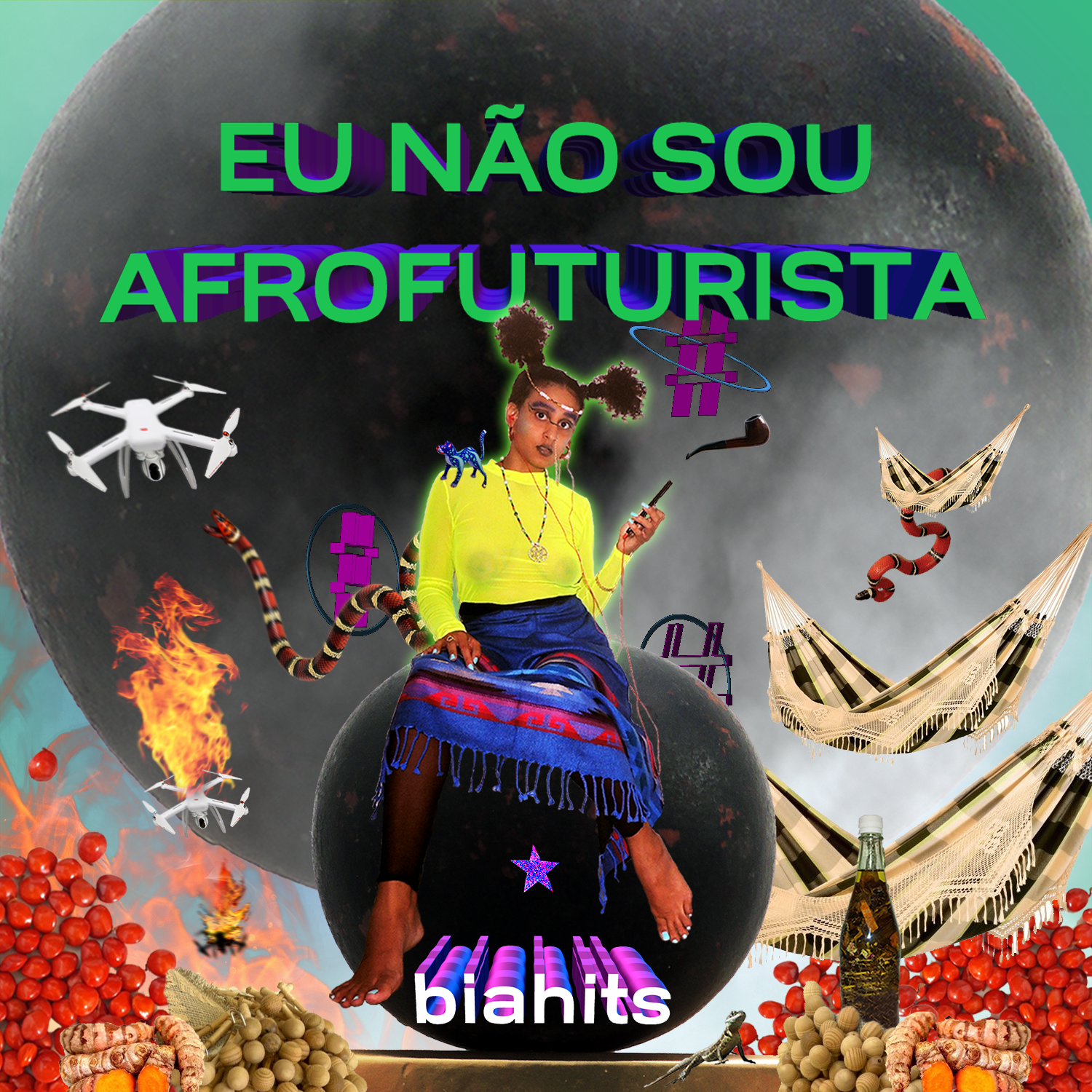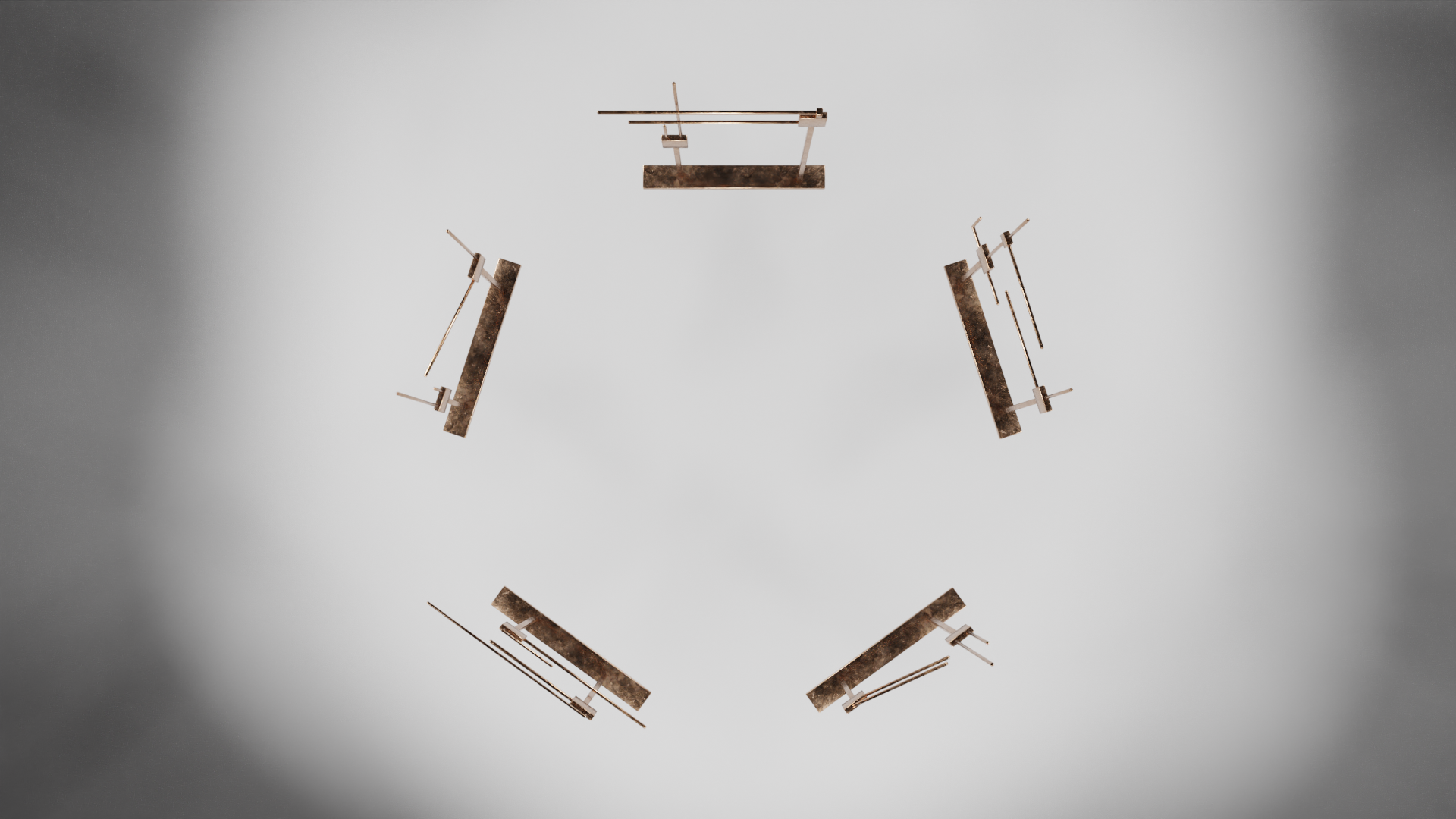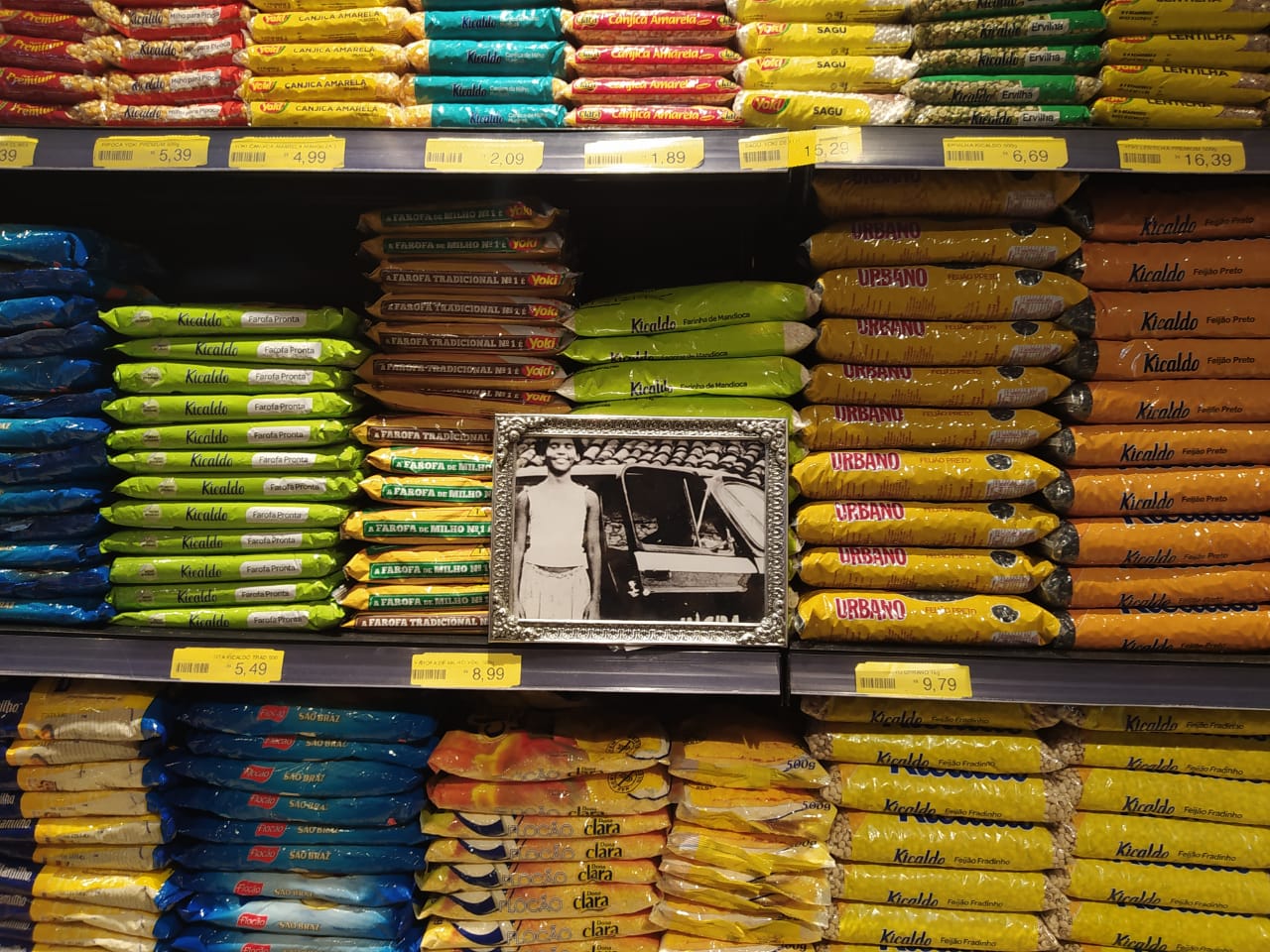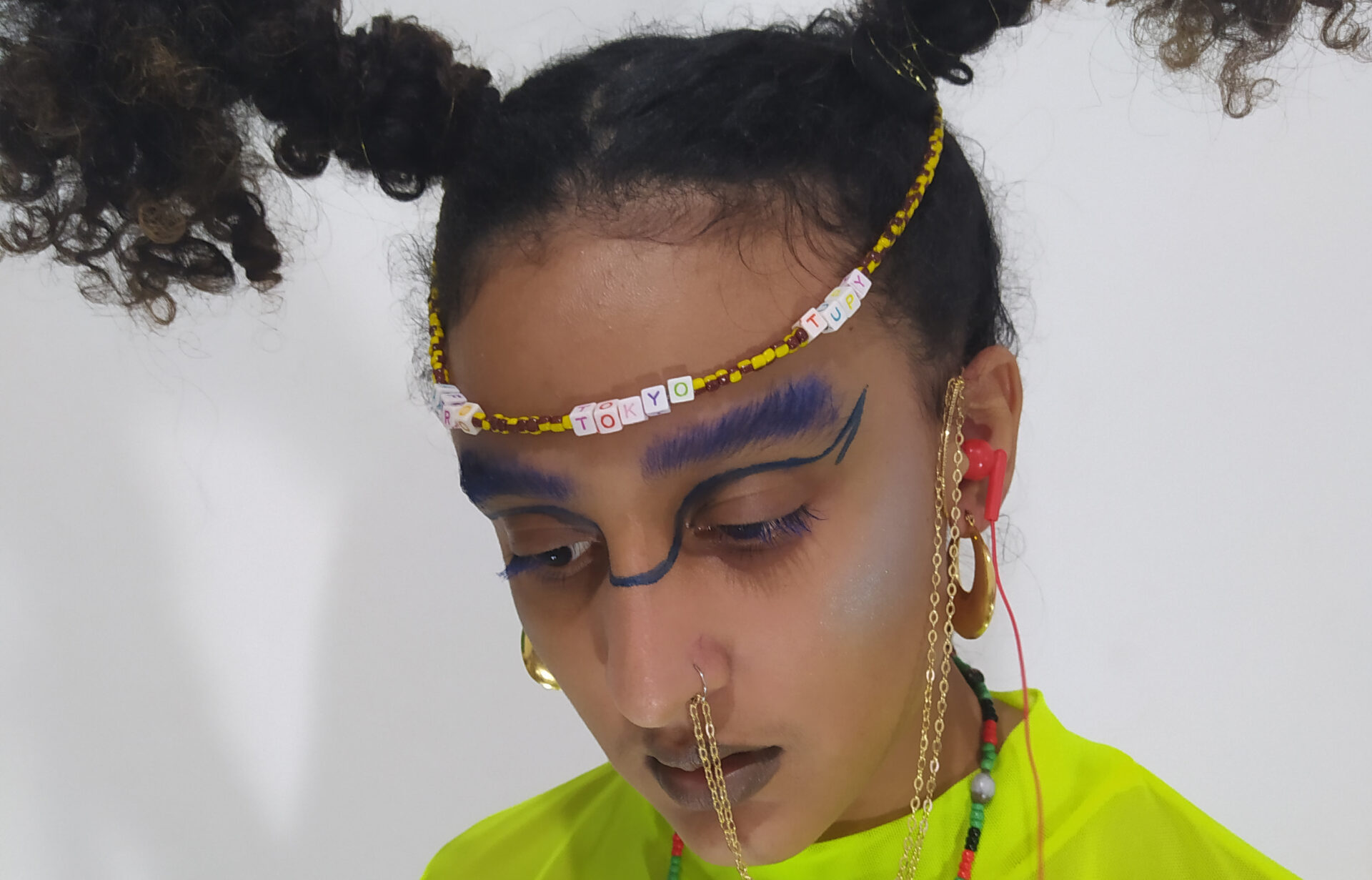

biarritzzz wants to enter your universe. She moves between the music scene, the party scene and contemporary art, but her chosen space for disseminating her ideas is the internet. She uses irony to talk about serious topics, such as the wreckage caused by the action/logic of white men over people, knowledge and ecosystems in the relentless search for progress. I AM NOT AN AFROFUTURIST, the artist’s most recent work is a music album that also features images and was designed specifically for the digital medium. The project is included in the virtual exhibition The Days Before the Crash, created by Diane Lima for Pivô Satellite.
Leo Felipe: Afrofuturism explores the intersections between African diaspora and technology, making use of resources that are typical of speculative fiction. Why are you so suspicious about it?
biarritzzz: It is difficult to imagine new realities or even to understand our own realities when we draw on concepts created in a different – physical, geographical, social, epistemological – place. By declaring myself as not an Afrofuturist I am not occupying a place of suspiciousness against the aesthetic-philosophical current but underlining that I do not believe that this body of knowledge is able to explain my work – and that it shouldn’t. The reality which I am coming from, the context of Black-Indigenous people from the North and Northeast of Brazil, must coin its own new concepts, rather than lying in bed once again with North American and European concepts in search of legitimacy. People saw me as an Afrofuturist, but why? Does it mean that Black people working with the available technology are automatically Afrofuturists? When did I mention I was talking about the future? The languages I use in my work, such as GIF art and video-art, have been around since the 1980s and 1990s, or even before. Why are they the “future”? I don’t want to talk about the future, I am still trying to put together the innumerable points between past and present that have been lost. Philosophically speaking, I criticize the very notion of time based on Chronos, the Greek god who ate his children. Time here was never linear, chronological. So I am not talking about the Western concept of time. I understand that Afrofuturism is now landing in Brazil following a big wave of popularity triggered by the mainstream Hollywood film Black Panther. But if I am talking about decoloniality, and arguing for our own way of thinking, instead of drawing on European or North American whiteness, how can I rely again on such terms to deal with things being thought and made around here? For my work, at least, the numbers don’t add up. At no point do I imagine a future, in fact, I am trying to reconnect links and data from the past in order to understand our present – and make me present. If today we understand that for the indigenous people of America and Africa, time is circular, spiral; a future that follows the present, which in turn comes after a past, and so forth, is not a reality that matches the reality I am in dialogue with. Future, progress, development are concepts that cannot be separated from one form or another of evolutionism, either philosophical or blatantly eugenic. And this has always meant three things: genocide, ecocide and epistemicide.

LF: In I AM NOT AN AFROFUTURIST, you remix a myriad of sounds, texts and images, featuring a diversity of references: from M.I.A., Baile da Gaiola, John and Yoko to Amerindian culture and the culture of the internet. Which are the main points of entry to the “universe of biarritzzz”?
b: I try to talk about the world around me and about the things that people are touched by, because I believe I communicate better that way. More than thinking about formal terms such as remix culture or hyper-media, I feel that this way of thinking has always been present amongst my post-internet generation. In this sense, it is not difficult to understand creation via parody and mimicry. This language of imitating the mainstream and its codes is part of my work, as well as the work of a whole generation that needs to draw on some kind of reference in order to enter the sea of information that is the connected world. Therefore, to initiate a dialogue using the recognizable, the kitsch, pop, icons, etc. as a bridge to talk about things I feel that I have to talk about, seems to be a good way of accessing new publics and universes. So perhaps the question is not about how to enter my universe, but rather how I am trying to enter yours!
LF: The album features many collaborations (as well as the participation of your alter ego, bia hits). You are also part of Escapa, a collective from Recife. Can you comment on your choice to engage in collaborative processes?
b: I don’t see collaborative processes as a choice when we are talking about works that are in dialogue with social media. In fact, in places with little resources and infrastructure, getting together is the only way out. Throughout the 7 years of my career, I have always been in partnerships, mostly with racialized people and gender dissidents. We get together in quilombos in order to survive and avoid talking alone. We are trying to burst bubbles.
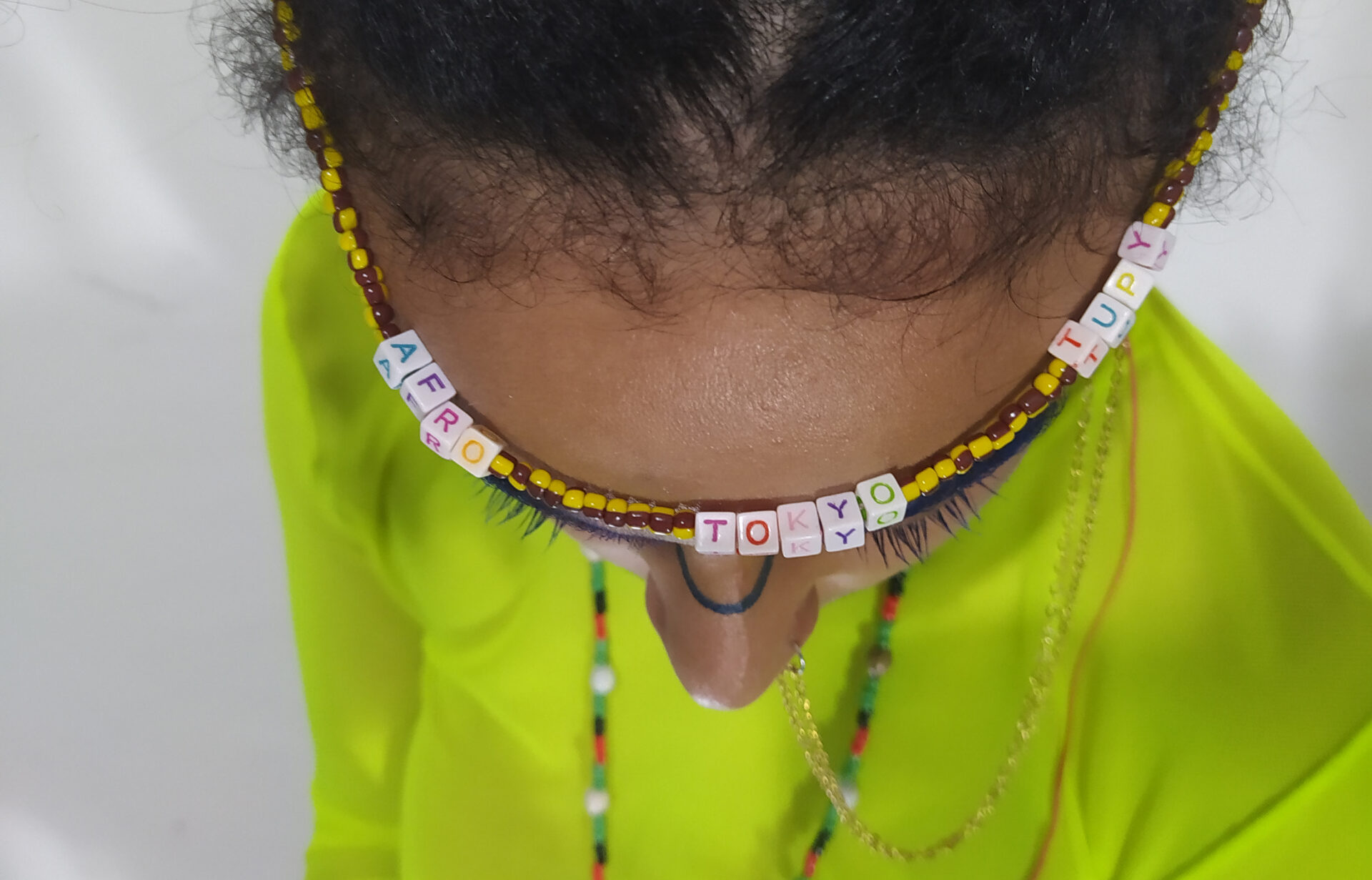
LF: You also say that “irony is something serious”. What is the importance of humor in your work?
b: Humor, sarcasm, irony are today the languages most dear to the planet. I understand memes as the world’s most potent mode of communication. Irony can reach places where standard text won’t go. The irony is something dubious per se; it comes from two places, which are often considered opposed. Talking about something to talk about something else is a strategy I have been using a lot. I understand artistic language as a place that allows you to shift between codes. Today, I see a poetic stripping of serious topics through the exclusive use of a language of activism. I argue that a language is a tool, but also a prison and that in the algorithmic world we live in, it is not something we have a hold of. Things that we read, see and applaud are directed, controlled and monitored down to the last detail. Therefore, to generate confusion in terms of value and to create seductive messages with humor – making them seem to be what they aren’t – it’s a very powerful route to take.
LF: I think your proposal – that memes, as replicating entities spreading across social media, can be used as a pedagogical resource – is very interesting. What are the Pedagogies of the Meme?
b: Pedagogies of the Meme is a term I initially developed to understand how memes, as a communication code, are received as messages that teach, literally propagating a pedagogical function. A message transmitted as quickly as a meme – which is considered the smallest particle of information on the internet that consequently propagates at exponential speed, like a virus, or a “low quality” image produced by non-professionals and that, therefore, are highly credible and identifiable – is a type of message able to reach places where no other message can go (such as texts, documentaries, films or any other media-based pedagogical instrument used until now). In addition, and simultaneously, the language of the meme is not only a vehicle for the information that the meme often teaches (behaviors, concepts, world views and even daily events) but also a culture that has in itself a lot to teach us. Today, I understand that many codes and values propagated by this culture of the do-it-yourself-images-of-low-professional-quality-funny-or-not reflect the best of the internet and its contributions, which are currently being obscured by colonial and imperialist powers that insist on dominating these “lands”.

 Português
Português